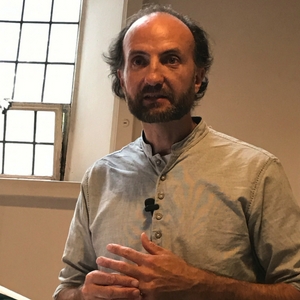Meditation & Science
-
About
The fierce opposition between scientific and religious wisdom has been one of the most disruptive forces in modern culture. Understanding the true meaning of wisdom as well as the essentially contemplative nature of science promises a healing of this relationship, restoration of balance between the two hemispheres of knowledge.
Meditation which represents the oldest recorded wisdom of humanity and is also profitably studied by science, is the bridge across this chasm. Contemporary life has been transformed but also seriously damaged by techno-science. The need for a new approach to human intelligence and creativity – a new self-understanding –has become urgent.
At the WCCM Meditatio Seminar Science and Meditation scientists and meditators (and meditating scientists) met to discuss these issues and to explore how scientific research itself would benefit from a contemplative approach.
Marco Schloremmer, the WCCM Coordinator for Science, speaks regularly about the nature of science and the importance of changing the way it is done.
-
Meditation & Science
By Shanida Nataraja
In recent years, there has been a large volume of research into the effects of meditation on the brain, mind and body of the meditator. From these research studies we have gained a deeper insight into the short- and long-term effects of meditation.
The research reveals that humans are not only hard-wired to experience ordinary reality, but they are also hard-wired to experience expanded states of awareness. A number of different types of meditation have been devised that unfold a chain of processes and activate numerous different brain structures within the human brain, thereby mediating our access to these expanded states of awareness..
The sustained attention inherent to meditation practice triggers a cascade of events in the brain that lead to changes in both the activity and structure of the brain, on both the short- and long-term. Of these changes, one of particular importance is the observed shift from left-brained, rational and logical thinking and perceiving to whole brain activity encompassing the right-brained, intuitive and creative mode of thinking and perceiving. Others convey greater control over emotional states, conscious control over the body’s ‘fight or flight’ stress response system, and loss of the sense of ‘self’. These findings provide a rational, scientific explanation for the subjective experiences of meditation, as well as suggesting that our brains have been designed so that the right key, such as that provided by meditation, can unlock this hidden potential.
Through this emerging picture of the brain structures, and systems involved in the process of meditation, we can better understand the long-term changes in physical, psychological, emotional and cognitive health associated with meditation. Regular meditation practice offers benefits to the meditator in terms of stress reduction, improved cardiovascular health and immune function, and improved coping strategies in the face of disease. It also gives rise to cognitive and psychological changes, addressing depression and anxiety, boosting cognitive skills, such as attention, decision-making and problem-solving, and playing an important role in driving the personal development of the meditator. This has strengthened the evidence supporting the use of meditation in certain clinical settings, such as people with depression or those fighting cancer, as well as in everyday life, in our workplaces, in our schools and in our prisons.
-
Audio
-
Talks
Contemplative Revolution Podcast: Ian McGilchrist — Asymmetry of the Brain and Human Meaning
Almost everything you think you know about differences between the brain hemispheres is wrong. The topic was taken over and
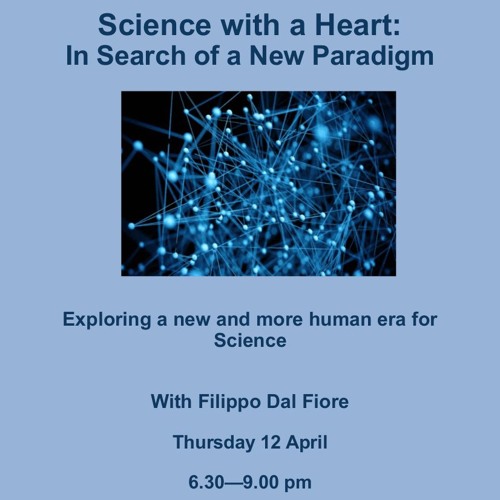
Science With A Heart by Filippo Dal Fiore
An evening at the Meditatio Centre in London exploring a new and more human era for science. Philippo Dal Fiore
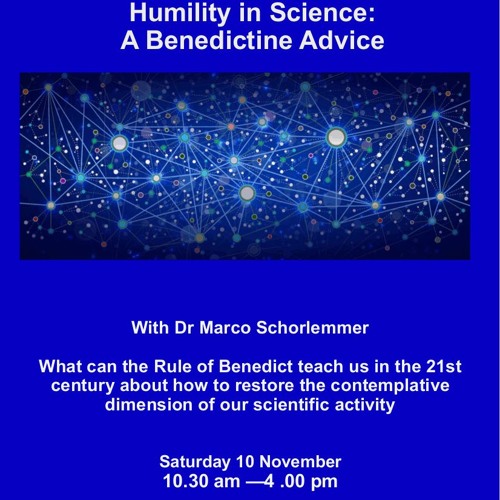
Humility In Science: A Benedictine Advice By Dr Marco Schorlemmer
This resource is provided free. If you would like to support our mission to communicate and nurture meditation in the
Contemplation for an Age of Artificial Intelligence at the Meditatio Centre
The Meditatio Centre in London received Dr Marco Schorlemmer on 20 May for the talk on “Contemplation for an Age
Dr. Rupert Sheldrake Speaks About Science and Meditation
On 15 February, Dr. Rupert Sheldrake spoke at The Meditatio Centre in London about Science and Spritual Practices. Dr. Sheldrake
Contemplative Revolution Podcast: Ian McGilchrist — Asymmetry of the Brain and Human Meaning
Almost everything you think you know about differences between the brain hemispheres is wrong. The topic was taken over and

Science With A Heart by Filippo Dal Fiore
An evening at the Meditatio Centre in London exploring a new and more human era for science. Philippo Dal Fiore

Humility In Science: A Benedictine Advice By Dr Marco Schorlemmer
This resource is provided free. If you would like to support our mission to communicate and nurture meditation in the
Contemplation for an Age of Artificial Intelligence at the Meditatio Centre
The Meditatio Centre in London received Dr Marco Schorlemmer on 20 May for the talk on “Contemplation for an Age
Dr. Rupert Sheldrake Speaks About Science and Meditation
On 15 February, Dr. Rupert Sheldrake spoke at The Meditatio Centre in London about Science and Spritual Practices. Dr. Sheldrake
-
Seminars
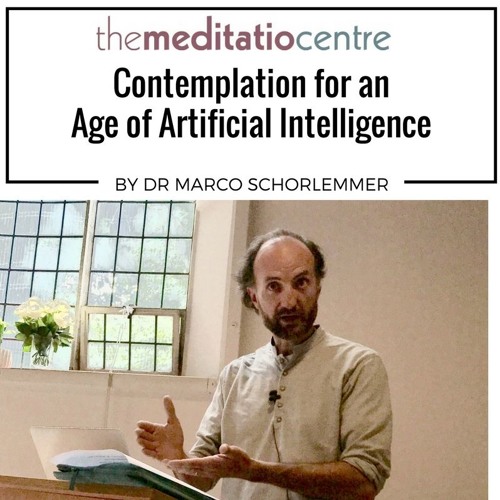
Contemplation for an Age of Artificial Intelligence
Download the transcript here: https://issuu.com/meditatio/docs/contemplation_for_an_age_of_artific 1 – Talk 12 – Q&A Session Talk 13 – Talk 24 – Q&A Session Talk
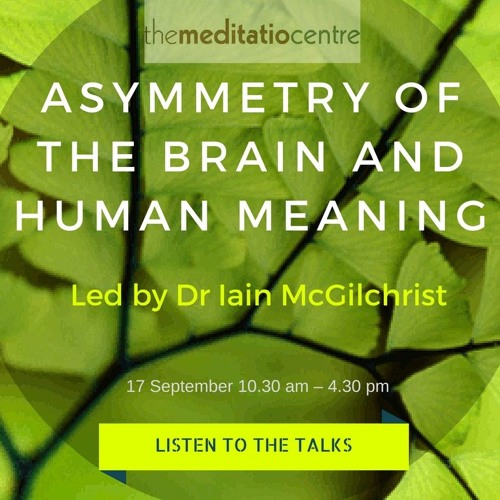
Asymmetry of the Brain and Human Meaning with Dr Iain McGilchrist
Asymmetry of the Brain and Human Meaning with Dr Iain McGilchristAt The Meditatio Centre, St Marks Myddelton Sq London EC1R

Contemplation for an Age of Artificial Intelligence
Download the transcript here: https://issuu.com/meditatio/docs/contemplation_for_an_age_of_artific 1 – Talk 12 – Q&A Session Talk 13 – Talk 24 – Q&A Session Talk

Asymmetry of the Brain and Human Meaning with Dr Iain McGilchrist
Asymmetry of the Brain and Human Meaning with Dr Iain McGilchristAt The Meditatio Centre, St Marks Myddelton Sq London EC1R
-
Resources for Purchase

